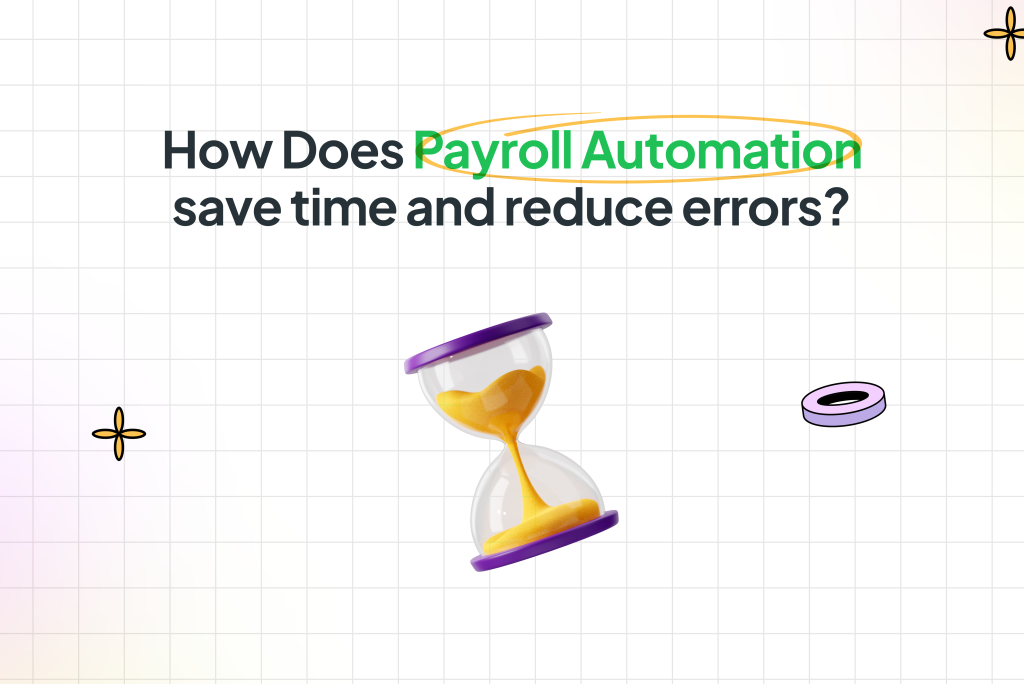
In the bustling tech hubs of Lagos or Abuja, imagine an HR manager at a growing Nigerian startup. The company is scaling quickly, and payroll management has become a monthly ordeal. Armed with spreadsheets and a calculator, the HR manager scrambles to calculate salaries, deduct taxes, and ensure compliance. Mistakes are common: an overlooked overtime payment here, a miscalculated tax withholding there. Employees grow frustrated, and morale takes a hit. Enter payroll automation, a solution designed to eliminate these issues by saving time and drastically reducing errors.
Payroll automation isn’t just a luxury for big corporations; it’s an essential tool for startups and small businesses that want to focus on growth while ensuring their employees are satisfied and paid accurately. In this article, we’ll explore how payroll automation works, its key benefits, and who stands to gain the most from implementing this game-changing technology.
What is Payroll Automation?
Payroll automation refers to using software to streamline payroll processes, from calculating salaries and tax withholdings to generating pay slips and filing statutory deductions. It eliminates the need for manual calculations by automating repetitive tasks using pre-set algorithms and compliance rules.
An automated payroll system ensures accuracy and integrates features like real-time tax updates, direct deposits, and employee self-service portals. These systems simplify complex payroll tasks, enabling HR teams to focus on strategic activities instead of getting bogged down in administrative duties.
7 Benefits of Payroll Automation

1. Significant Time Savings
One of the most immediate benefits of payroll automation is the time saved on routine payroll tasks. Manual payroll processes often take hours or even days for HR teams to complete. Businesses can process payroll in a fraction of the time by automating calculations, tax filings, and record-keeping. According to industry statistics, automated payroll systems can save up to 80% of the time typically spent on payroll.
2. Reduces Human Errors
Payroll mistakes can be costly, both financially and in terms of reputation. Common errors in manual payroll include miscalculating overtime, missing tax updates, or incorrectly deducting benefits. Automated payroll systems eliminate these risks by performing accurate calculations based on programmed rules. This saves businesses from potential penalties and ensures employees are paid correctly, boosting morale and trust.
3. Ensures Compliance
Keeping up with Nigeria’s tax regulations and labor laws can be challenging, particularly for startups without dedicated compliance teams. Automated payroll systems are equipped with real-time updates to reflect the latest regulatory changes, ensuring businesses remain compliant without additional effort. This feature particularly benefits companies dealing with complex payroll structures or multiple jurisdictions.
4. Enhances Data Security

Payroll contains sensitive information, from employee bank account details to salary structures. Manual payroll systems relying on unsecured spreadsheets are vulnerable to breaches and unauthorized access. Automated systems use encryption and multi-factor authentication to safeguard data, reducing the risk of security lapses and ensuring compliance with data protection laws.
5. Improves Employee Satisfaction
Timely and accurate payments are crucial for maintaining employee trust and satisfaction. Delays or errors in payroll can lead to frustration and reduced morale. Automated systems ensure that employees receive their salaries on time and accurate pay slips detailing all deductions and benefits. Many systems also offer employee self-service portals, empowering workers to access their payroll information independently.
6. Facilitates Scalability
As businesses grow, so does the complexity of managing payroll. Automated systems are built to scale effortlessly, accommodating additional employees, new tax brackets, and changing benefits structures. This scalability makes payroll automation ideal for growing startups and expanding enterprises.
7. Generates Comprehensive Reports
Manual payroll systems cannot often provide detailed insights into payroll data. Automated systems generate comprehensive reports on labor costs, tax withholdings, and benefits utilization, giving businesses the tools to make informed decisions. These insights can be critical for financial planning and budgeting.
Who Stands to Gain the Most from Payroll Automation?

Small and Medium-Sized Businesses
For SMEs, time and resources are often limited. Payroll automation saves valuable hours, reduces overhead costs, and ensures compliance without hiring additional staff. Automated systems also level the playing field by providing SMEs with tools typically used by larger organizations.
Startups
Startups in Nigeria and beyond operate in high-pressure environments where efficiency is key. Payroll automation enables startups to scale quickly without the growing pains of manual payroll errors. For lean teams, this technology can be the difference between focusing on innovation and getting bogged down in administrative tasks.
HR Professionals
HR teams stand to benefit significantly from automation. By removing the burden of repetitive payroll tasks, HR professionals can redirect their efforts toward employee engagement, recruitment, and other strategic priorities. Automation also reduces the likelihood of burnout caused by handling manual payroll.
Employees
While businesses are the primary implementers of payroll automation, employees are among its biggest beneficiaries. Timely payments, access to transparent payroll information, and fewer errors enhance trust and job satisfaction, creating a more harmonious workplace.
Conclusion
For growing businesses, payroll automation is not just a tool; it’s a strategic advantage. It saves time, reduces errors, ensures compliance, and improves employee satisfaction, allowing businesses to focus on what truly matters: growth and innovation.
Nigerian startups and small businesses face this common challenge regardless of their industry. As competition and operational demands increase, payroll automation emerges as a solution to streamline processes, boost efficiency, and build employee trust.
If you’re considering switching to payroll automation, now is the time. With robust systems available to suit businesses of all sizes, the benefits far outweigh the initial investment. Let Salario take care of your payroll automation, so you can focus on building a thriving and successful enterprise.
